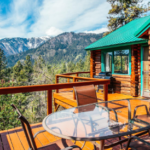Concerts have the power to transcend ordinary experiences, creating moments of sheer euphoria and collective memory for audiences. Some performances stand out as the best concerts of all time, defined by their impact, energy, and the unforgettable experiences they provided. These concerts have become legendary, often setting the bar for live performances across generations.
Legendary Performances That Defined Eras
Woodstock (1969)
Woodstock is perhaps the most iconic music festival in history, symbolizing the counterculture of the 1960s. Held in Bethel, New York, Woodstock attracted over 400,000 attendees and featured legendary performances from artists such as Jimi Hendrix, Janis Joplin, The Who, and Jefferson Airplane. Hendrix’s rendition of “The Star-Spangled Banner” became a defining moment, capturing the spirit of the era. Despite the logistical challenges and unpredictable weather, Woodstock’s three days of peace and music left an indelible mark on music history.
Queen at Live Aid (1985)
Freddie Mercury’s electrifying performance with Queen at Live Aid is widely regarded as one of the greatest live performances ever. Held at Wembley Stadium in London, Live Aid was a global concert event organized to raise funds for famine relief in Ethiopia. Queen’s 20-minute set, including “Bohemian Rhapsody,” “Radio Ga Ga,” and “We Are the Champions,” showcased Mercury’s unparalleled stage presence and the band’s musical prowess. Their performance not only reinvigorated Queen’s career but also demonstrated the unifying power of music.
The Beatles’ Rooftop Concert (1969)
The Beatles’ impromptu rooftop concert atop Apple Corps’ headquarters in London was their final public performance. This unannounced concert became a historic event, immortalized in the documentary film “Let It Be.” The band played hits like “Get Back,” “Don’t Let Me Down,” and “I’ve Got a Feeling” to the surprise and delight of passersby. The performance captured the essence of The Beatles’ innovative spirit and marked the end of an era for the legendary group.
Jimi Hendrix at Monterey Pop Festival (1967)
Jimi Hendrix’s performance at the Monterey Pop Festival is often remembered for its explosive energy and his now-famous guitar sacrifice. Closing his set with a rendition of The Troggs’ “Wild Thing,” Hendrix set his guitar on fire, creating one of the most iconic images in rock history. This performance not only solidified Hendrix’s reputation as a groundbreaking artist but also established the Monterey Pop Festival as a pivotal moment in rock music.
Modern Spectacles and Their Lasting Impact
U2’s Zoo TV Tour (1992-1993)
U2’s Zoo TV Tour was a groundbreaking concert experience that blended multimedia elements with live performance. The tour’s innovative use of video screens, satellite links, and stage design created a sensory overload that mirrored the media-saturated world of the early 1990s. With setlists featuring hits like “One,” “Mysterious Ways,” and “Where the Streets Have No Name,” U2 delivered performances that were both visually and musically stunning. The Zoo TV Tour redefined the possibilities of live concerts, influencing the design and production of future tours.
Beyoncé at Coachella (2018)
Dubbed “Beychella,” Beyoncé’s headlining performance at the 2018 Coachella Valley Music and Arts Festival was a tour de force of choreography, musicianship, and cultural significance. Paying homage to historically black colleges and universities (HBCUs), Beyoncé’s performance featured a full marching band, elaborate dance routines, and a powerful message of black pride and empowerment. Hits like “Crazy in Love,” “Formation,” and “Single Ladies” energized the crowd, and her collaboration with Destiny’s Child provided a nostalgic highlight. Beyoncé’s Coachella performance set a new standard for festival headliners and showcased her unparalleled artistry.
Bruce Springsteen’s “Born in the U.S.A.” Tour (1984-1985)
Bruce Springsteen’s “Born in the U.S.A.” Tour was a defining moment in his career, characterized by marathon performances and a deep connection with his audience. With a setlist that included anthems like “Born in the U.S.A.,” “Dancing in the Dark,” and “Thunder Road,” Springsteen and the E Street Band delivered high-energy shows that often lasted over three hours. The tour solidified Springsteen’s reputation as one of the greatest live performers, blending rock and roll with heartfelt storytelling.
Pink Floyd’s “The Wall” Tour (1980-1981)
Pink Floyd’s “The Wall” Tour was a groundbreaking theatrical experience that brought their concept album to life. The tour featured elaborate stage sets, including the construction of a physical wall between the band and the audience, symbolizing isolation and alienation. Performances of songs like “Another Brick in the Wall,” “Comfortably Numb,” and “Hey You” were enhanced by stunning visual effects and dramatic storytelling. The Wall Tour pushed the boundaries of live music, combining rock concert with theatrical performance in a way that has rarely been matched.
These unforgettable concerts highlight the diverse ways in which live performances can create lasting memories and cultural milestones. From the groundbreaking energy of Woodstock and the iconic rooftop concert by The Beatles to the multimedia extravaganza of U2’s Zoo TV Tour and the cultural significance of Beyoncé’s Coachella performance, these concerts have become benchmarks in music history. They exemplify the power of live music to inspire, unite, and transcend the ordinary, leaving an indelible mark on both artists and audiences.
In conclusion, the best concerts of all time are more than just musical performances; they are transformative experiences that capture the essence of their eras, push artistic boundaries, and create a shared sense of community. These legendary performances continue to resonate, reminding us of the profound impact that live music can have on our lives.











